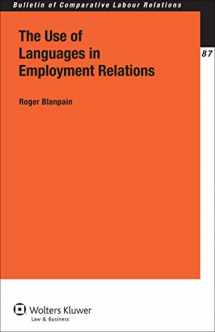
The Use of Languages in Employment Relations (Bulletin of Comparative Labour Relations, 87)
Book details
Summary
Description
In a world dominated by thousands of multinational enterprises which take worldwide and far-reaching decisions from faraway headquarters, and in which cross-border migration of workers hugely exceeds all precedent, enforcing the prohibition of discrimination on the basis of language emerges as a major challenge. Despite the policy consensus of "unity in diversity" that prevails nearly everywhere today, exceptional rules continue to emerge as necessary to protect languages against economic pressure from other linguistic groups and cultures. Especially in the European Union, where freedom of movement of workers and freedom of services are explicitly guaranteed, language-related circumstances often lead to serious disputes that have not been envisioned by policymakers or legislators.
This first book of its kind focuses on this nexus between employment relations and linguistic diversity, principally in the EU but taking parallel global developments into account. The author cover such issues and topics as the following:
- language-related rights of parties to a cross-border employent contract;
- language of employment documents;
- access to information, both for companies and posted workers;
- oral relations between employer and employee;
- the language of transnational collective agreements;
- circumstances under which a country may have the right to require knowledge of its language;
- objectives of the EU language strategy;
- representation of marginalized language groups; and
- identifying a "seat of exploitation" of an enterprise.


We would LOVE it if you could help us and other readers by reviewing the book
Book review



